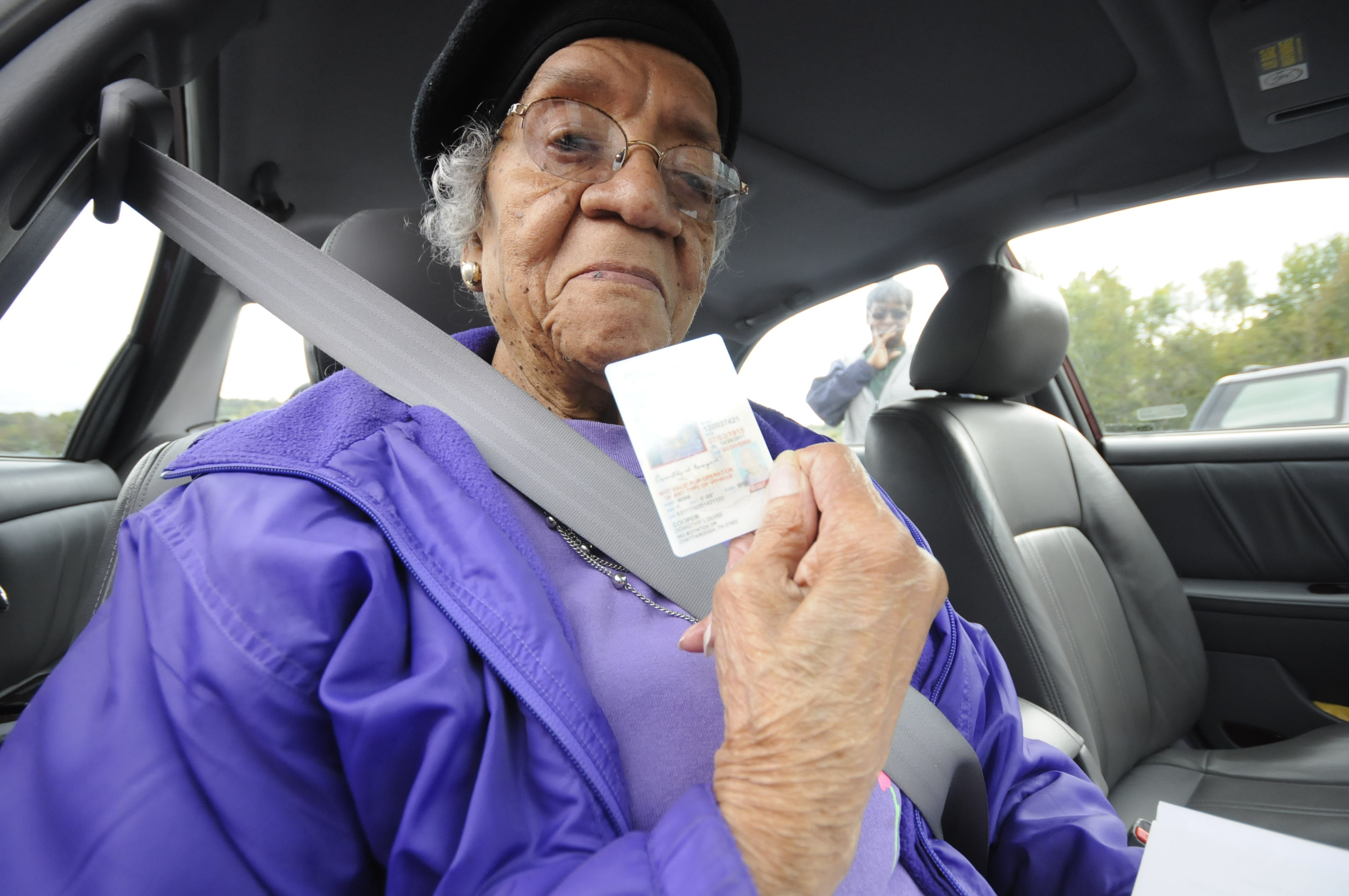Dorothy Cooper may be 96, but she's become the poster child for Democratic opposition to a Republican-sponsored state law requiring photo identification to vote -- she's even attracted the attention of the nation's Democrat in Chief.
Days after the Chattanooga resident was denied the free photo ID card promised in a new state law, state Democratic Party Chairman Chip Forrester cited her travails in a campaign fundraising email.
Forrester's email said that "Tennessee's new Republican 'photo ID' law has successfully suppressed another voter," as reported by Nashville Scene. It invited potential donors to "Please give $5, $10 or $25 to support our efforts to ensure people like Dorothy -- or your grandmother -- can be a voter on Election Day."
On Thursday, when Cooper went to the driver's license center in Red Bank for her second try at getting the ID, videographers with Barack Obama's presidential campaign were there to record events, Tennessee campaign spokeswoman Addie Whisenant said.
Democratic Party spokesman Brandon Puttbrese said Cooper "was very receptive" when the party asked about citing her experience in voter education and registration drives.
"We made sure she was OK with this," Puttbrese said Friday. "She and every other law-abiding citizen just want people to be able to vote."
But a state Republican Party official pointed to Forrester's email and said the Democrats have "exploited a 96-year-old woman for political reasons."
"It doesn't seem like the Democrats want to help people vote. They want to scare them," said Adam Nickas, executive director of the Tennessee GOP.
"I know Tennessee Democrats are struggling to raise money right now but that should never negate their responsibility to inform voters of their voting rights," he said.
Puttbrese said Cooper's experience illustrates what's wrong with the law, which was passed this year in the Republican-dominated state Legislature and signed by Republican Gov. Bill Haslam. Democrats have introduced legislation to repeal the law.
A 91-year-old Murfreesboro woman said this week she couldn't get a photo ID because she was physically unable to stand in a long line at the driver's license center, according to The Associated Press.
"It makes me about halfway mad because I know what's going on," Virginia Lasater said later. She said she is "absolutely" sure the law is part of a Republican strategy to keep senior citizens from voting.
The law's sponsor, Sen. Bill Ketron, R-Murfreesboro, told the AP that he wants every eligible citizen to vote and that his office will help any voter who has trouble getting an ID.
Cooper got her photo ID Thursday on her second try, though it took a call from Republican Lt. Gov. Ron Ramsey to the driver's license center in Red Bank to get the paperwork straight.
"It took two tries with someone helping her to get an ID," Puttbrese said. "That's not a success story. That's just an illustration of the problems with this law."
He said there are 200,000 registered Tennessee voters and another 675,000 eligible voters who don't have government-issued photo ID.
As of Thursday, the state had issued 571 photo IDs for voting purposes, Safety Department spokeswoman Dalya Qualls said Friday.
"Even if Republicans thought they were protecting someone's right to vote, the reality is there are about 200,000 registered voters without photo ID out there," Puttbrese said.
"That discrepancy is too big. We are 19 weeks away from the first test of this new law, which will be the March primary. We are running out of time."
Nickas isn't buying it. He said Tennessee law allows people to vote absentee without giving a reason or providing a photo ID. In fact, he noted, Cooper had said after being turned down the first time that she would vote by absentee ballot.
"The simple solution is to make sure she has an application to absentee vote and that's all she needs," Nickas said. "She was propped up as someone who was unable to get a photo ID but she didn't need one."
He said a Republican poll last year found 92 percent of respondents supported a photo ID law to "protect the integrity of the process."
"The last thing we want to see is someone vote to or three times and negate someone's vote, like Ms. Cooper's," he said.
The party is trying to help with public education by distributing information from the state Division of Elections about the law, Nickas said.
"We're about informing voters about this law, not manipulating [Ms. Cooper's} situation to raise money to advance a political agenda."

